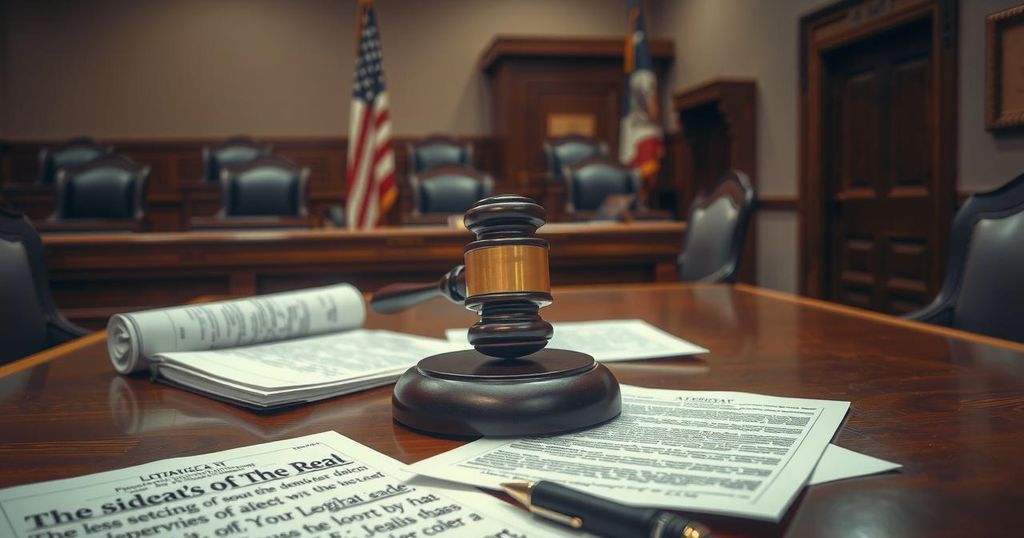Federal Judge to Preserve Signal Chat Records on Military Strikes in Yemen
A federal judge plans to order the Trump administration to preserve records of Signal chat communications regarding military operations in Yemen. The order follows a lawsuit from American Oversight highlighting concerns over transparency and potential violations of federal record-keeping laws. The chat contained sensitive details of military strategies shared among high-ranking officials.
A federal judge has indicated his intent to mandate the preservation of records from a Signal chat involving senior national security officials discussing military strategies against Yemen’s Houthis. U.S. District Judge James Boasberg stated he would issue a temporary restraining order to prevent the destruction of these encrypted messages. The request for this order was made by the nonprofit organization American Oversight, and a government attorney confirmed that measures are in place to collect and retain the messages.
The chat, which was published by The Atlantic, included prominent figures such as Defense Secretary Pete Hegseth, National Security Adviser Michael Waltz, Secretary of State Marco Rubio, Vice President JD Vance, and Director of National Intelligence Tulsi Gabbard. It detailed specific timings and locations of planned military operations against the Houthis in Yemen. Hegseth outlined when aircraft would launch and weapons would be deployed, providing critical operational information.
American Oversight filed a lawsuit to ensure that these communications are preserved in compliance with the Federal Records Act. They suspect the officials often use Signal for official communications, which raises concerns about transparency regarding government actions. The organization’s legal representatives stated, “Defendants’ use of a non-classified commercial application even for such life-and-death matters… leads to the inevitable inference that Defendants must have used Signal to conduct other official government business.”
Judge Boasberg specified that his order would apply to messages sent between March 11 and March 15. Amber Richer, an attorney from the Justice Department, noted that the authorities are determining the extent of records available. Boasberg expressed relief at finding a solution and requested an update by Monday.
White House Press Secretary Karoline Leavitt asserted that no classified content was shared in the Signal chat. Hegseth’s spokesperson remarked that no classified materials or war plans were circulated during the discussion. Both Gabbard and CIA Director John Ratcliffe informed the Senate Intelligence Committee that Hegseth was responsible for deciding whether information was classified.
American Oversight’s counsel argued for the public’s right to access government communications, regardless of whether messages are configured to auto-delete. They stated, “This is nothing less than a systematic effort to evade the rules for record retention in the federal government,” which hampers the public’s ability to scrutinize government operations effectively.
The federal judge’s intention to preserve chat records from the Trump administration signifies a movement towards transparency in government operations, particularly concerning military actions. The concerns raised by American Oversight highlight the importance of compliance with federal record-keeping laws to ensure public access to government activities. The resolution of this issue will be crucial in determining the balance between national security and accountability to the public.
Original Source: www.pbs.org








Post Comment